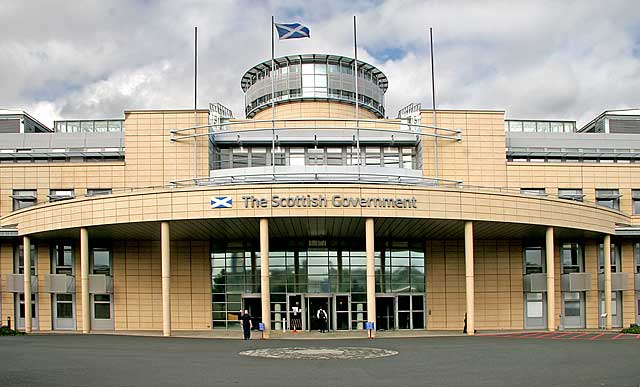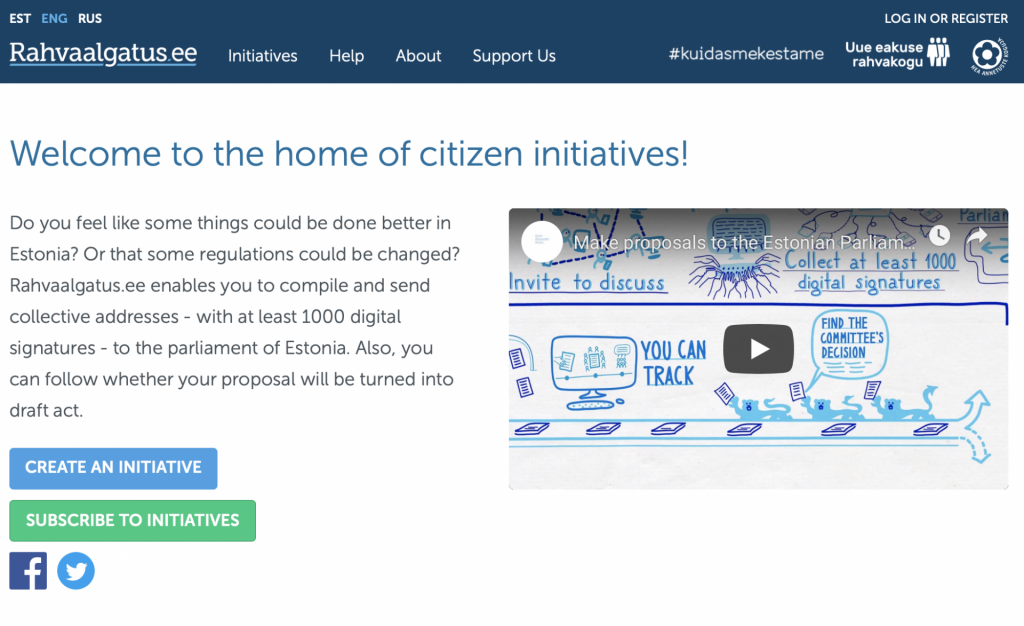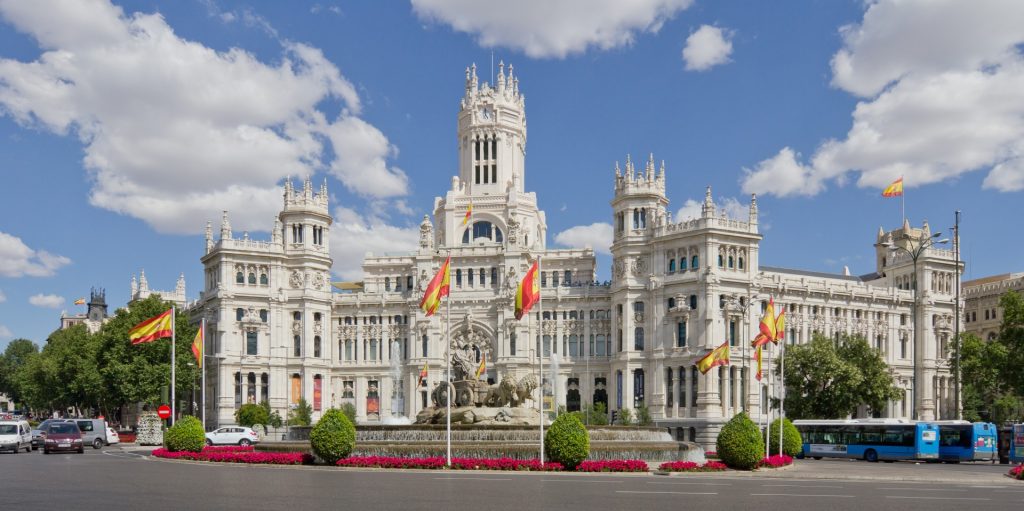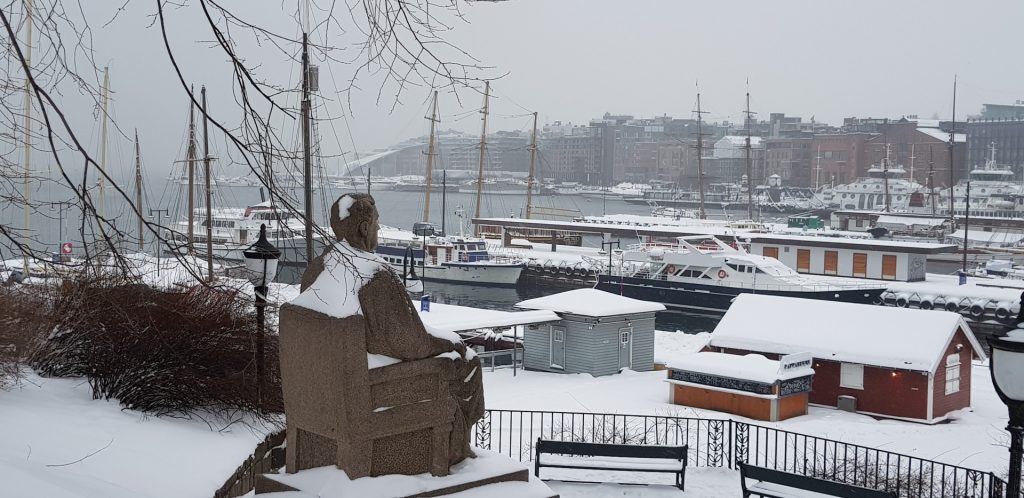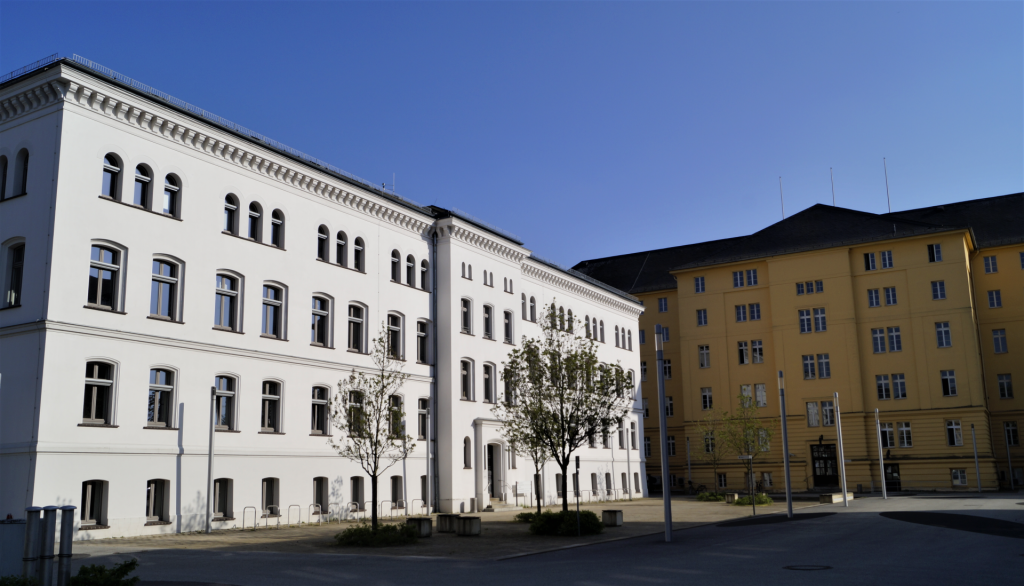Digital democracy experimentation: the Case of the Stem van West tool in Amsterdam
The ‘Stem van West’ project (translated ‘the Voice of West’, hereafter referred to as SvW) is a digital tool that facilitates the policy-making process of the neighborhood council of Amsterdam-West. Citizens of the neighborhood can vote on plans, voice their concerns, and upload ideas and proposals themselves. If an idea on the platform’s interface surpasses…
Read MoreWe asked, you said, we did: an e-participation practice in the UK
We asked, you said, we did is a feature of the platform called Citizen Space. It provides a mechanism for how citizens/stakeholders responses (You said) to an e-consultation (We asked) have been considered in the policy-making process (We did). It is provided by the private company Delib to more than 110 diverse organisations around the world…
Read MoreParticipatory Parliamentarism: the Case of the Estonian Citizens’ Initiative Portal
The Estonian Citizens’ Initiative portal (ECIP) is an e-participatory instrument allowing individuals to submit collective addresses to the parliament via an online platform. This encompasses proposing new ideas for laws and policies or suggesting changes to existing laws and policies. The e-participation portal is formally institutionalized through a cluster of laws and regulations addressing the…
Read MoreDecide Madrid: A Case Study on E-Participation
Carlos Delgado, Palacio de Comunicaciones - 47, CC BY-SA 3.0 Decide Madrid (DM) is the first e-participation platform that allows citizens, associations, NGOs and companies to be involved in the policy cycle in Madrid municipality. DM was launched in 2015 and allows citizens to make proposals, vote in citizen consultations, propose participatory budget projects, decide…
Read Moreminsak.no: An online petition platform for all Norwegian municipalities and regions
“minsak.no”, founded in January 2013, is an online petition tool that can be used for the submission of petitions at the regional and municipal level within the framework of §39a of the Norwegian Municipal Act. Paragraph 39a guarantees the citizens of Norway that local and regional legislative bodies have to deal with the petitioners’ proposal…
Read MoreParlement & Citoyens: an online platform connecting citizens and lawmakers for policy design in France
Romain Vincens, L’hémicycle du Sénat français en septembre 2009, CC BY-SA 3.0 Parlement & Citoyens (P&C) is an online platform “enabling citizens and legislators to work together to find solutions to [France’s] problems”. This website is a private e-participation initiative. The French context is characterized by a high e-participation index and a high-level of citizens’…
Read MoreDigital Transformation in German Multi-Level Governance – The Case of Digitalisation Labs on “Immigration and Emigration”
At present, the digital administrative landscape in Germany has been dominated by isolated solutions and the German Online Access Act (OZG) seeks to support harmonisation and better collaboration by creating uniform standards across administrative levels. It obliges the federal administration, the Länder and the municipalities to offer their administrative services digitally by the end of…
Read More

